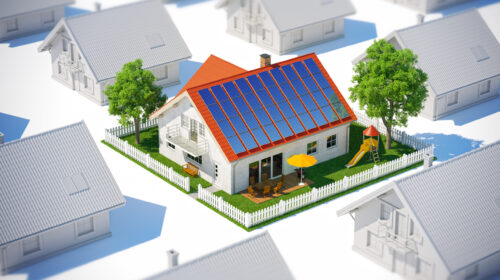Eco-home
My Eco-Home is my protective shell for survival on an overcrowded planet.
Henri Maalouf
Each family’s Eco-home in the Eco-city is prefabricated from timber or Eco-friendly materials and designed to cost not more than $100,000. The interest rates in developed countries are less than 1.5 to 3% in Western countries. So, the cost of interest is less than $125 to $250/month and is affordable for a working family.
The interest is 75% cheaper than renting, which saves a government such as the United Kingdom or European countries, billions in housing benefits they pay to the unemployed. In the USA and Canada, it lifts more people out of poverty, reduces their cost of living and provides the poorest with a better standard of living. The concept is the same and improves people’s lives in any country in the world by eliminating poverty, raising the living standards and employing more people to give them a better life.
A self-sufficient Eco-home is necessary to live an Eco-lifestyle to allow a family to eat from their garden reducing the need to travel. They can avoid exposure to any contagious disease or virus. Electricity is free from solar panels or wind turbines stored in batteries and water collection is from the rain or rivers treated, recycled and reused. The Internet is supplied by satellite dishes or cables.
Transport companies can use drones and autonomous or driverless electric cars for deliveries, save money and avoid environmental pollution. Trucks could use green hydrogen energy to stop polluting the environment. People should travel by airplane for continental or long distances only. Airplanes should use Eco-friendly fuel alternatives instead of the conventional kerosene jet fuel that pollutes the atmosphere.
As the population explodes, pollution increases and climate change causes environmental disasters. COVID-19 was just a warning for humanity to change their ways of living. There will be more to come. People and politicians must quickly adapt and change their systems to avoid future disasters and economic meltdowns. It is wise to expect the worst and adapt to avoid it.
Governments must adapt their socio-economic systems for people to work and study from home to become self-sufficient. Building traditional houses, towns and cities must be replaced by Eco-homes and Eco-cities. However, building cities is not enough and must be accompanied by an autonomous Eco-socio-economic system that can withstand recessions and pandemics.


